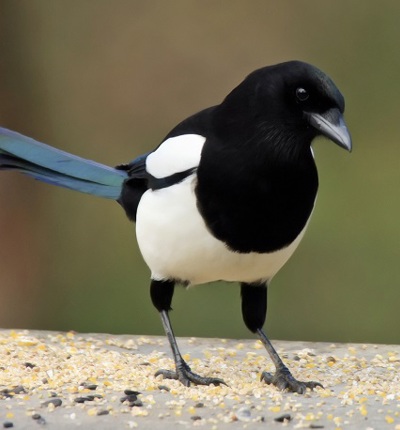
Wild Justice has secured a landmark victory for UK wildlife in its first legal case
The legal campaigning group Wild Justice has secured a landmark victory for UK wildlife in its first legal case, which challenged Natural England's decision to issue licences for the lethal control of birds.
Posted on 25 April 2019
In March 2019 lawyers Leigh Day, acting on behalf of Wild Justice, filed proceedings against Natural England’s decision in January this year to issue General Licences 04, 05 and 06 which permit the killing of 15 species of birds, including Jays, Collared Doves, Woodpigeons, Jackdaws, and Ring-necked Parakeets.
Without such authorisation the killing of these birds would be a criminal offence under the Wildlife and Countryside Act 1981.
The EU Birds Directive and the Wildlife and Countryside Act 1981 provide strong theoretical protection to all birds but allow in certain circumstances for people to take lethal action. This includes where the killing is intended to meet a specific purpose such as preventing the spread of disease or preserving air safety.
However, the law states that before issuing a so-called General Licence, Natural England as the competent authority must first properly satisfy itself that no alternative non-lethal means, such as scaring, could provide a satisfactory solution.
Wild Justice contended that Natural England wrongly put the onus on individual licence users to explore non-lethal methods as part of the licence conditions. In its legal claim, Wild Justice did not ask for the licences to be revoked, but sought to ensure the same legal error was not made in any further or replacement licences.
In pre-action correspondence Natural England confirmed that it agreed that the law required the statutory body itself to be satisfied that no alternative non-lethal means existed before issuing the licences but declined to say whether or not, and if so how, it had satisfied itself before issuing the 2019 General Licences. Wild Justice therefore issued legal proceedings as a last resort.
On 23 April 2019 Natural England announced that in response to the challenge it will revoke the General Licences 04, 05 and 06 from 25 April.
Natural England has confirmed that its decision – which accepts that the current licences are unlawful - was made at a Board meeting on 15 April 2019. Wild Justice and all stakeholders were notified on 23 April 2019.
In a significant victory for wildlife protection in the UK, Natural England says that it will now take swift steps put in place a new licence system that complies with the law.
Wild Justice’s Directors – Dr Ruth Tingay, Chris Packham and Dr Mark Avery, released a statement:
“We are delighted to have won this legal case. What sort of world is it where the statutory body with responsibility for wildlife protection is operating a bird-killing licensing scheme that is unlawful? Millions of birds are killed each year under the terms of the General Licences and many of these deaths will not be justified. We are grateful to over 1100 individuals who funded this legal challenge and allowed us to take it with the means to progress it through the courts. NE could have, and in our view should have, conceded the correctness of our case many weeks ago. This would have reduced the financial costs to the public and allowed farmers and land managers more time to adjust to the news that their bird-killing actions may have been illegal for several decades. This is a mess of Natural England’s making – they have operated an unlawful licensing system and they have dillied and dallied over admitting it.”
Carol Day, solicitor at Leigh Day, said:
“We are very pleased that Natural England has conceded that the General Licences are issued with insufficient scrutiny to confirm that damage to crops or livestock, or threat to safety, is occurring and that non-lethal methods have been exhausted. On behalf of Wild Justice, we pointed out that Natural England’s approach was unlawful.
“Wild Justice did not ask for the current licences to be revoked - preferring instead for the system to be changed ready for next year - but Natural England has obviously decided that this is the appropriate response in the circumstances. We look forward to supporting Wild Justice in putting forward its views on how the licensing system should work more effectively, and lawfully, going forward.”
For information about Leigh Day’s wildlife protection work, please contact Carol Day, Consultant and Tom Short, Solicitor.
Wild Justice is a not-for-profit organisation that launched publicly in February 2019. Wild Justice was established by wildlife experts Dr Ruth Tingay, Dr Mark Avery and Chris Packham CBE with the aim of using the law to further nature conservation and wildlife protection across the UK as well as to encourage public participation in nature conservation issues. You can find out more about Wild Justice on Twitter.

